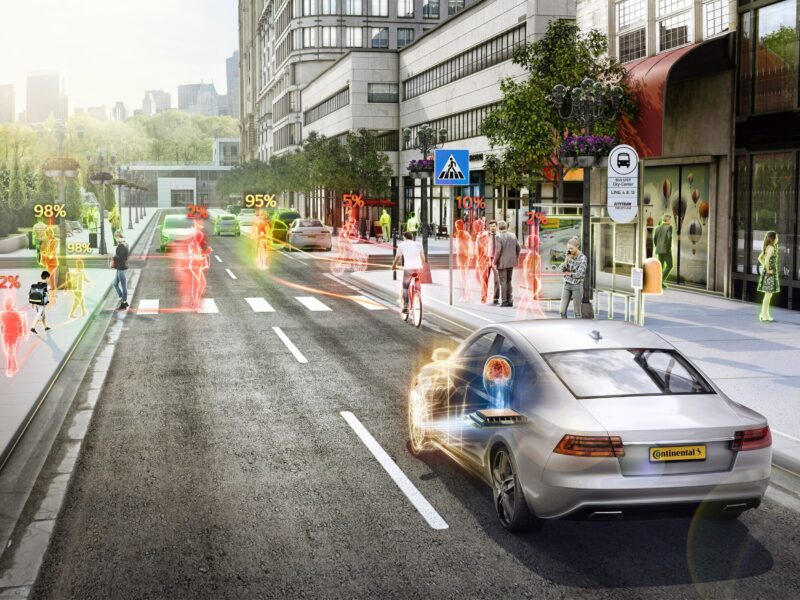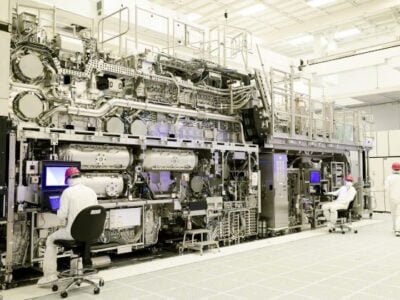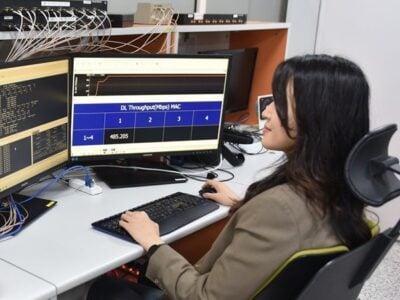
Jointly researching AI for automated driving in cities
By the end of 2022, algorithms based on artificial intelligence (AI) should be developed and tested for the entire chain of effects of automated driving. Enhanced interdisciplinary and inter-university collaboration covers the entire range of technology for the relevant functional steps of automation.
Together with Technical University (TU) Darmstadt, the University of Bremen (Germany) and TU Iaşi (Romania), technology company Continental is continuing the series of its PRORETA research projects. PRORETA 5 is dedicated to one of the most challenging tasks for automated driving: recognizing complex traffic situations in inner cities and how algorithms from sensor data can deduce the correct driving decisions in these situations. At an unregulated intersection, for example, it is a challenge to correctly interpret all objects related to the intended direction of travel – including their direction of movement, intention and priority – without human intervention. Artificial Intelligence (AI) plays a key role in this. AI methods are to be tested when the implementation of traditional approaches becomes too complex or reaches its limits. The main advantage of AI is that, following a training period, it is able to draw its own correct conclusions based on its learning, even in unknown situations. This element is reflected in the slogan “urbAn drIving.”
The PRORETA 5 project (2019–2022), based on a three-and-a-half-year term, is examining the algorithms of cognition, behaviour prediction and decision making in a demonstration vehicle built and equipped by Continental. At the end of the project in September 2022, the aim is to assess the performance of the new AI-based automation for the Society of Automotive Engineers (SAE) Level 4, using the widest possible range of inner-city scenarios and thus demonstrate the potential for future deployment.
The algorithms based on artificial intelligence should be able to correctly recognize and interpret these types of complex traffic scenarios, resulting in correct driving decisions being made. A sub-area of this will be to observe how a human driver reduces and assesses the complexity of the environment. The learning-capable algorithms of the PRORETA 5 project will be trained in accordance with similar principles in order to achieve a driving performance comparable to that of humans.
At the University of Bremen, PRORETA 5 will add special expertise in the area of environmental detection through sensor data fusion. Amalgamated under the technical term “cognition”, these are all processes associated with perception and recognition. In turn, TU Iaşi in Romania is focusing on predicting the behaviour of other road users. The team at TU Darmstadt is focusing on the topics of systems and safety engineering, trajectory planning and control technology.
In the meantime, PRORETA has reached the second milestone: The first measurement campaign to record training data in the prototype vehicle with Continental software and hardware is currently underway in Bremen. The vehicle, which was initially trained in Bremen, will be handed over to TU Darmstadt for further test drives during the course of the project.
Continental – www.continental-press.com
 If you enjoyed this article, you will like the following ones: don't miss them by subscribing to :
eeNews on Google News
If you enjoyed this article, you will like the following ones: don't miss them by subscribing to :
eeNews on Google News




